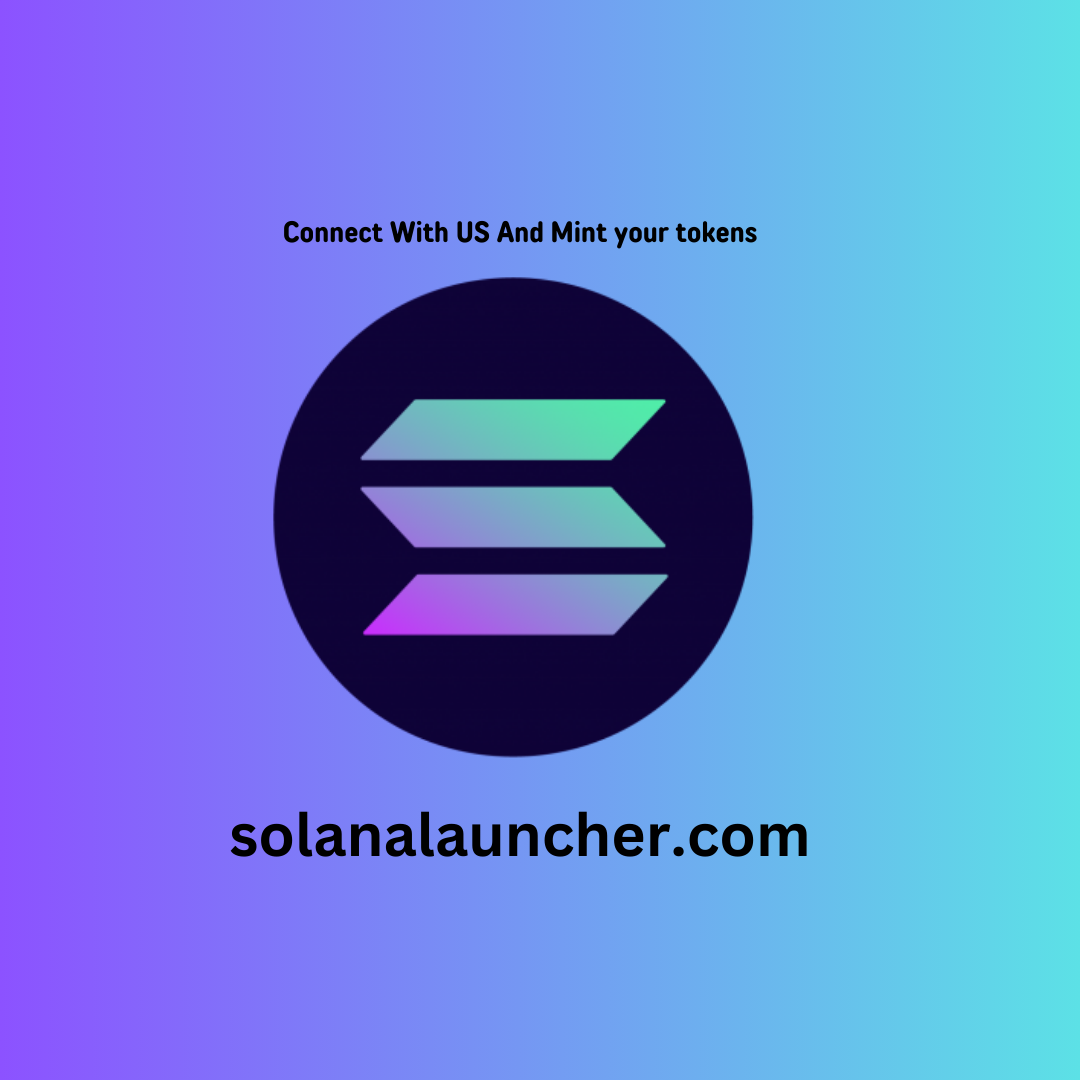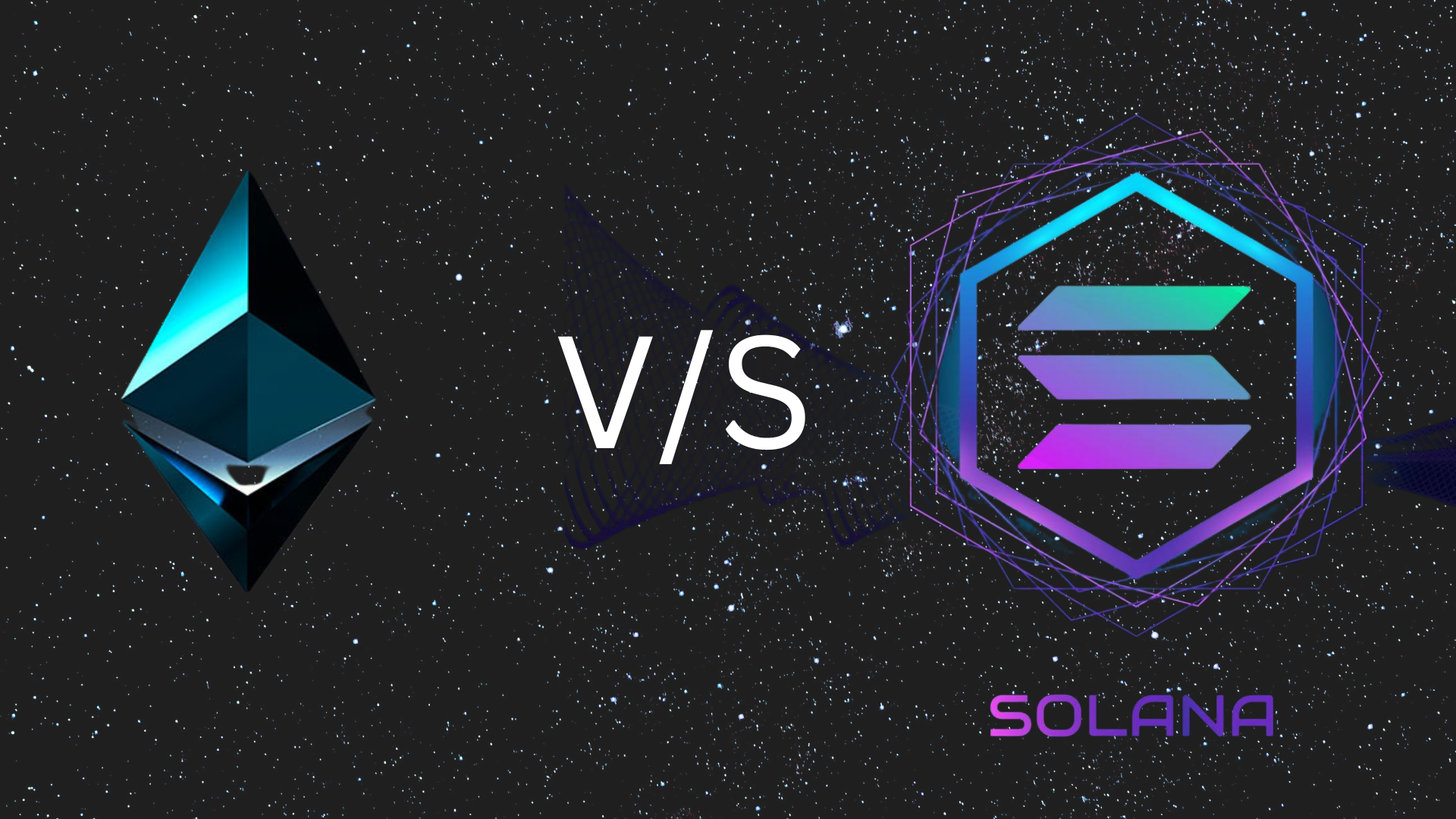Which Blockchain Should You Choose: Solana or Ethereum for Your Token?
 Solana launcher
Solana launcher
When it comes to launching your own cryptocurrency token, the choice of blockchain is crucial. The two most popular options for token creation are Solana and Ethereum, each with their unique strengths and capabilities. While Ethereum has long been the go-to blockchain for developers and projects, Solana has emerged as a strong competitor with its focus on speed, scalability, and low transaction fees. In this blog, we’ll compare Solana and Ethereum, focusing on why Solana might be the better choice for your token, especially when using tools like the Solana token creator, instant token creator, and revoke mint authority tool.
Why Blockchain Choice Matters for Token Creation
Choosing the right blockchain is one of the most critical decisions you’ll make when launching a token. It impacts the speed, cost, scalability, and even the potential success of your token. Both Solana and Ethereum are popular choices, but the differences between them can significantly affect your project.
Ethereum is the older, more established blockchain, known for its smart contract functionality. However, Ethereum has been facing challenges with network congestion and high gas fees, which can be prohibitive for smaller projects or high-frequency transactions.
Solana, on the other hand, offers a faster and more cost-effective solution, making it an ideal option for creators looking to scale quickly and minimize fees. Let’s take a closer look at the key features of both blockchains and why Solana might be the better choice.
Ethereum: The Long-Standing King
Ethereum is the second-largest cryptocurrency by market capitalization and has been a popular choice for decentralized applications (dApps) and token creation. It supports the widely-used ERC-20 and ERC-721 token standards, which have become industry benchmarks for fungible and non-fungible tokens (NFTs).
Strengths of Ethereum:
Established Ecosystem: Ethereum has a vast ecosystem of developers, tools, and decentralized applications, making it a reliable choice for many projects.
Smart Contracts: Ethereum pioneered smart contracts, allowing developers to build complex applications that run on its blockchain.
Security: As one of the most secure blockchains, Ethereum is backed by thousands of nodes worldwide, ensuring decentralization and robustness.
However, Ethereum is not without its drawbacks.
Weaknesses of Ethereum:
High Gas Fees: Ethereum’s transaction fees, known as gas fees, can be extremely high during peak times, making it costly for token transfers and smart contract executions.
Scalability Issues: Ethereum can only handle around 15 transactions per second, which often leads to network congestion and slow transaction times.
Transition to Ethereum 2.0: While Ethereum is working on transitioning to a Proof-of-Stake (PoS) system with Ethereum 2.0, the current Proof-of-Work (PoW) model is slower and less efficient than Solana’s model.
Solana: The Fast and Scalable Contender
Solana is quickly gaining traction as a go-to blockchain for token creation and decentralized applications. Known for its high throughput and low fees, Solana offers significant advantages over Ethereum, especially for projects requiring fast transaction speeds and scalability.
Strengths of Solana:
High-Speed Transactions: Solana can handle up to 65,000 transactions per second (TPS), compared to Ethereum’s 15 TPS. This makes it an ideal choice for projects that require high throughput, such as decentralized finance (DeFi) platforms or gaming tokens.
Low Fees: Transaction costs on Solana are typically less than a fraction of a cent, making it much more affordable than Ethereum, especially for projects with frequent transactions.
Solana Token Creator: The Solana token creator is a user-friendly tool that allows anyone to create their own token without the need for extensive coding knowledge. This feature simplifies the token creation process, enabling projects to launch tokens quickly and efficiently.
Instant Token Creator: With the instant token creator, users can mint tokens in minutes, further reducing the time and cost involved in token generation.
Revoke Mint Authority Tool: Solana offers a unique revoke mint authority tool, which allows creators to remove the minting privileges after creating the token. This ensures that no more tokens can be minted in the future, preventing inflation and protecting the token’s value.
Scalability: Solana’s architecture is designed for scalability, making it an ideal platform for growing projects that anticipate high transaction volumes.
Weaknesses of Solana:
Less Established Ecosystem: While Solana’s ecosystem is growing rapidly, it is still smaller than Ethereum’s.
Fewer Developers: Ethereum has a larger developer community, which means there are more tools and resources available for Ethereum projects. However, Solana is catching up quickly.
Why Solana Is Better for Token Creation
While Ethereum has its merits, Solana stands out as a better choice for token creation, particularly for projects focused on speed, scalability, and cost-efficiency. Here’s why:
Lower Transaction Costs: Solana’s low transaction fees make it an affordable choice, particularly for smaller projects or those requiring frequent token transfers. Ethereum’s high gas fees can be a barrier to entry, especially for new developers and small-scale projects.
Faster Transactions: Solana’s ability to process up to 65,000 transactions per second means your token will operate smoothly, even during high-demand periods. Ethereum’s slower transaction speeds can lead to delays and bottlenecks, especially during times of network congestion.
Instant Token Creation: The instant token creator on Solana allows you to create and launch your token in a matter of minutes, streamlining the entire process. With Ethereum, token creation can be more complex and time-consuming due to high fees and slower speeds.
Revoke Mint Authority: With Solana’s revoke mint authority tool, you can ensure that no more tokens are minted after the initial creation, offering additional security and peace of mind. This feature is particularly useful for projects that want to establish a fixed supply and maintain token scarcity.
Scalability for Growing Projects: As your project grows, you’ll need a blockchain that can handle an increasing number of transactions. Solana’s scalable architecture ensures that your project can grow without experiencing delays or high costs, unlike Ethereum, which struggles with scalability.
Conclusion: Choose Solana for Your Token
When it comes to choosing between Solana and Ethereum for your token, Solana offers several key advantages. With its Solana token creator, instant token creator, and revoke mint authority tool, Solana makes token creation easy, fast, and secure. The combination of low fees, high transaction speeds, and scalability makes Solana an excellent choice for both small and large projects alike. While Ethereum remains a strong platform, Solana’s cutting-edge technology is quickly making it the preferred blockchain for token creation in 2023 and beyond.
If you’re ready to create your own token, Solana provides the tools and infrastructure you need to succeed. Start exploring the Solana token creator today and take advantage of the fastest-growing blockchain in the crypto world.
Subscribe to my newsletter
Read articles from Solana launcher directly inside your inbox. Subscribe to the newsletter, and don't miss out.
Written by

Solana launcher
Solana launcher
Hello Investor! In our solanalauncher.com Here you can generate your own memecoins token on solana in just less than three seconds without any programming knowledge If you are new to solana? Don't Worry Our team is ready to assist you!